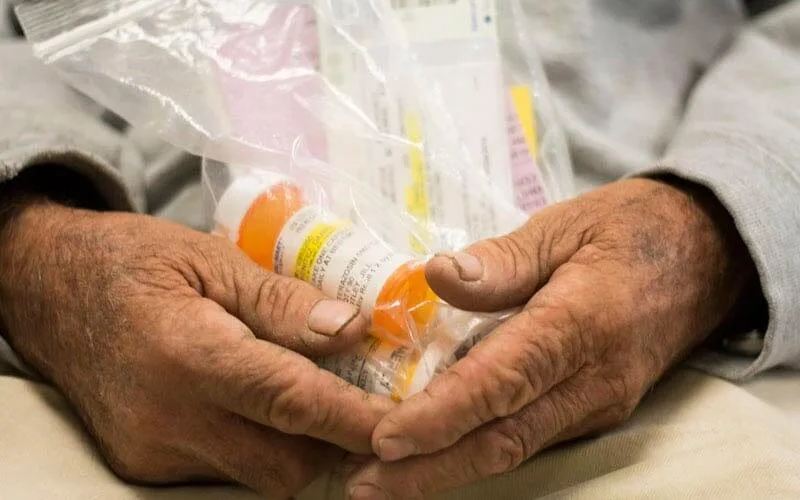
Your prescriptions just got more expensive in Arizona. This is why.
Some of the world’s largest pharmaceutical companies are raising list prices on more than 200 drugs sold in the U.S. this year, according to healthcare research firm 3 Axis Advisors.
The announcement comes on the crest of a drug price hike wave, and the Trump administration’s proposal to allow less expensive medicines to be imported from Canada. Since last January, nearly 4,000 different medications have spiked in price.
Notable increases announced include:
- Myeloma drug Revlimid: 6%
- Multiple sclerosis treatment Tecfidera: 6%
- Blood thinner Eliquis: 6%
- Breast cancer treatment Ibrance: 5%
- Arthritis medication Xeljanz: 5%
- HIV treatments Biktarvy and Truvada: less than 5%
- Cancer immunotherapies Opdivo and Yervoy: 1.5%
3 Axis Advisor co-founder Eric Pachman told Reuters that roughly half of the increases will be in the 4% to 6% range overall, and almost all will see less than a 10% rise. However, he also mentioned that more increases will be announced this week, which may affect those ranges.
According to David Bailie, a longtime sports medicine expert and Orthopedic surgeon in Scottsdale, these increases could lead to a rise in another problem: Arizonans leaving behind their prescriptions altogether.
“Instead of taking their medication as prescribed, many Arizonans are rationing doses or not filling their prescriptions because the cost is too high,” Bailie wrote in an op-ed last month. Nationally, the Center for Disease Control found that more than one-third of uninsured patients opted not to take their medicine as prescribed.
Bailie said he believes legislative intervention is needed to make drugs affordable. However, the price hike is at odds with a bill recently passed by the House of Representatives. The H.R.3 Lower Drug Costs Now Act of 2019—designed to curb the cost of prescription drugs—is expected to save patients more than $450 billion over the next decade if it’s passed.
Despite the White House’s vow to reduce out-of-pocket medical costs by 2020, the House voted along partisan lines, with no dissent among Democrats and just two Republicans coming out in support of the measure. The bill now faces an uphill battle in the Senate, where Sen. John Thune (R-S.D.) told the Washington Post the measure was “dead on arrival.” Should it pass in the Senate, President Donald Trump has hinted that he will veto the bill.
In a statement emphasizing the need for drug pricing legislation, Rep. Tom O’Halleran, (D-Ariz.), said, “In this time of hyper-partisanship, the only way we can fully address real issues impacting the American people is to identify commonsense, bipartisan solutions that can be implemented into law.”
A similar bill in the Senate, the Prescription Drug Pricing Reduction Act (PDPRA) of 2019, is experiencing similar trouble in obtaining bipartisan support. Though it was introduced by Senate Finance Committee Chairman Chuck Grassley (R-Iowa) and Sen. Ron Wyden, (D-Ore.), Republican Senators, including Martha McSally (R-Ariz.) are hesitant to show their support. When asked about the legislation last August during a tour of a Safeway pharmacy in Phoenix, McSally said her team is “studying the bill” and “trying to provide some constructive feedback.”
On the other side of the aisle, Sen. Kyrsten Sinema (D-Ariz.) also hasn’t indicated whether she will support H.R. 3 or the PDPRA.
While lawmakers continue to study the bill, drug reform advocates like Bailie are hopeful McSally and others will get behind legislation like PDPRA that rely on regulation of prices rather than a competitive healthcare market to cut down the cost of drugs.
“Martha McSally understands how rising prescription drug costs have harmed our state,” he said. “She has spoken with constituents on how the issue has affected them and has met with pharmacies to investigate the cause and impact of price hikes.”
Support Our Cause
Thank you for taking the time to read our work. Before you go, we hope you'll consider supporting our values-driven journalism, which has always strived to make clear what's really at stake for Arizonans and our future.
Since day one, our goal here at The Copper Courier has always been to empower people across the state with fact-based news and information. We believe that when people are armed with knowledge about what's happening in their local, state, and federal governments—including who is working on their behalf and who is actively trying to block efforts aimed at improving the daily lives of Arizona families—they will be inspired to become civically engaged.


He said what? 10 things to know about RFK Jr.
The Kennedy family has long been considered “Democratic royalty.” But Robert F. Kennedy, Jr.—son of Robert F. Kennedy, who was assassinated while...

Here’s everything you need to know about this month’s Mercury retrograde
Does everything in your life feel a little more chaotic than usual? Or do you feel like misunderstandings are cropping up more frequently than they...

Arizona expects to be back at the center of election attacks. Its officials are going on offense
Republican Richer and Democrat Fontes are taking more aggressive steps than ever to rebuild trust with voters, knock down disinformation, and...

George Santos’ former treasurer running attack ads in Arizona with Dem-sounding PAC name
An unregistered, Republican-run political action committee from Texas with a deceptively Democratic name and ties to disgraced US Rep. George Santos...





